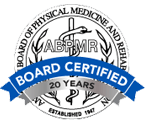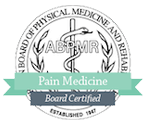Muscles cramps, colloquially known as a charley horse, are a common, painful ailment. While not usually considered serious, the sudden contraction of the muscle, or spasm, can cause serious discomfort and temporarily interfere with function. In some cases, muscle cramps may be a sign of a medical issue that needs to be addressed. Muscle cramps can occur anywhere in the body, but most frequently occur in the legs, affecting the calf, hamstring or quadriceps muscles.
Causes of Muscle Cramps
There are several causes of muscle cramps, which are more common in individuals who are pregnant, overweight, elderly, or have certain medical problems, such as diabetes, or thyroid, nerve or liver disorders. Muscle cramps may be caused by:
- Dehydration
- Muscle loss or weakness
- Certain medications, such as diuretics
- Electrolyte imbalance
- Poor circulation
- Nerve compression
- Muscle breakdown because of a metabolic disorder (rhabdomyolysis)
Athletes, particularly those who overexert themselves in warm weather, or who do not stretch properly prior to exercise, are at increased danger of developing muscle cramps. The elderly, in addition to being prone to dehydration, have decreased muscle mass because of their age, making their muscles more susceptible to injury.
Treatment of Muscle Cramps
Home remedies are normally sufficient to relieve muscle cramps or the resulting tightness and pain. Applied heat or a hot shower is often helpful, as are massage and light stretches. Typically, muscle cramps resolve on their own within a few hours or days. Medical consultation is only necessary if:
- Pain continues after home treatment
- There are noticeable skin changes
- The leg or other affected body part swells
- There is ongoing muscle weakness
- Muscle cramps happen repeatedly
- Muscle cramps occur for no known reason
For most people, muscle cramps are an occasional, short-lived annoyance, but, since they may be a sign of a serious medical condition, it is important to check with a physician if muscle cramps are abnormally frequent or otherwise troublesome.




